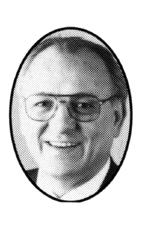Mr. Speaker, I thank the member. I thought the Bloc had forgotten about me.
I consider Davis Inlet one of the success stories of the government. I went in there, unlike the Bloc. I went to Atlantic Canada five time. I went to the community once. I met with the leadership in Ottawa several times. I met with it in Halifax several times. We provided a package of almost $80 million of federal funds for that community.
We have done 35 consultative reports with those people. We are working on their education facilities and we are building houses. We are not building houses for them; we are working with them. They are building their own houses and they are getting trained. We are working in the health facilities.
Unlike what happened under the former government, this was not only a local story or a provincial story, it was an international story, which it no longer is, and we did it.

